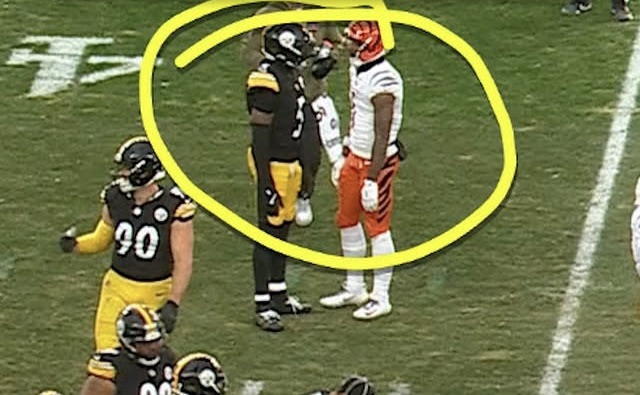Understanding the Rule, When It’s Used, and Its Impact on Players and Games
The NFL rule book is known for its detailed guidelines, covering everything from pass interference to helmet-to-helmet contact. But there’s also a broad rule that covers actions not specifically listed: “any act which is contrary to the generally understood principles of sportsmanship.” This rule allows referees and the league to penalize behavior that violates the spirit of fair play, even if it isn’t explicitly mentioned elsewhere.
In this article, we’ll break down what this rule means, when it’s used, what kinds of actions it covers, and how it affects players and teams.
⸻
What Does the Rule Mean?
The phrase “any act which is contrary to the generally understood principles of sportsmanship” acts as a catch-all clause in the NFL rule book. It empowers officials and the league to penalize players for behavior that is:
- Disrespectful or unsportsmanlike
- Not explicitly listed in other rule sections
- Considered unethical or unfair
- Violating the spirit of competition, even if not illegal by rule
In simple terms, if a player’s action goes against basic sportsmanship—even if it’s not specifically banned—it can still be penalized.
⸻
Examples of Actions That May Fall Under This Rule
These behaviors often trigger penalties or disciplinary action under the sportsmanship clause:
- Unsportsmanlike Action Description
- Taunting or mocking opponents
- Verbal or physical gestures to humiliate an opponent
- Spitting at a player
- Considered disrespectful and unsanitary
- Excessive or provocative celebrations Especially if directed at opponents
- Verbal abuse towards officials or players Includes profanity, threats, or harassment
- Trying to provoke a fight Physical intimidation or antagonizing actions
- Disrespecting the game Kicking the ball away, refusing to cooperate, etc.
⸻
Penalties for Violating the Sportsmanship Rule
Players who commit an act deemed to violate general sportsmanship may face disciplinary measures, including:
- 15-yard Unsportsmanlike Conduct penalty
- Fines issued by the league office
- Disqualification (ejection from game)
- Possible suspension, depending on severity
- Reputational impact, affecting future considerations like team contracts
⸻
Why This Rule Is Important
The NFL uses this rule to protect the reputation of the league, promote fair play, and maintain integrity. It ensures that:
- Players respect opponents and officials
- Games remain professional and disciplined
- Referees have flexibility in addressing actions not directly covered by other rules
Without this clause, players could exploit loopholes in the rule book to engage in questionable behavior without penalty.
⸻
How Players and Coaches View This Rule
Many coaches support this rule because it encourages discipline and professionalism. However, some players believe it can be too subjective, allowing officials to interpret intent or emotions. Still, the NFL continues to uphold it as a key part of preserving the game’s integrity.
⸻
Final Thoughts
The NFL’s sportsmanship clause exists to protect the game’s ethics when no specific rule applies. It ensures that players compete fairly, respectfully, and professionally—upholding the tradition and spirit of football.
When the NFL cites “any act which is contrary to the generally understood principles of sportsmanship,” it’s their way of saying:
Even if it’s not written in the book, you still know what’s right and wrong.

